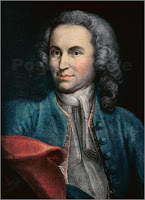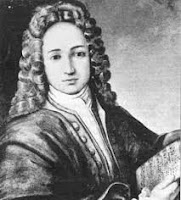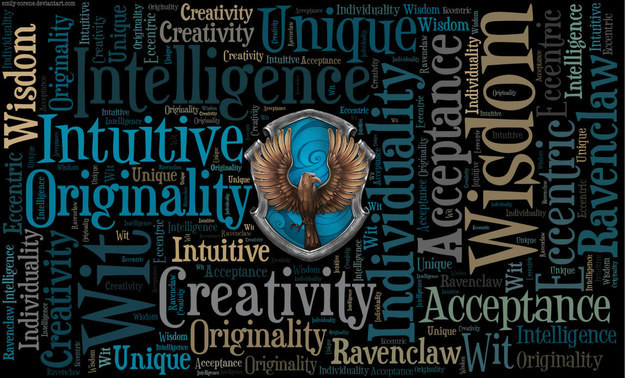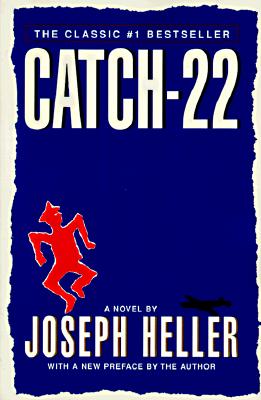Thursday, December 31, 2009
Cinema 2009
My husband and I only went to the movies five times this year; however, I believe that we did pick a fairly good group of films in that we did not regret the cost. Enjoy!
Bright Star *****
Harry Potter and the Half-Blood Prince ****
Monsters VS Aliens (a guilty pleasure)
Sherlock Holmes ***+
Star Trek ***+
Bright Star *****
Harry Potter and the Half-Blood Prince ****
Monsters VS Aliens (a guilty pleasure)
Sherlock Holmes ***+
Star Trek ***+
52 In 52 Challenge
Well, I almost made it. I have noted the placement of titles which are in a series. Some of these are very guilty pleasures. I don't believe that there is a single "bodice-ripper" among them, though I really like mysteries and books with a special eerieness to them. I wish that some of you may give a few of these a try.
Bennett A : The Uncommon Reader *****
Berry S : The Charlemagne Pursuit ****
Cussler C : Arctic Drift **+
Cussler C : Medusa**+
Cussler C : The Chase **+
Davis L : A Body In The Bathhouse****(13)
Davis L : A Dying Light In Corduba****(8)
Davis L : Alexandria****(19)
Davis L : Last Act In Palmyra****(6)
Davis L : Ode To A Banker****(12)
Davis L : One Virgin Too Many****(11)
Davis L : Poseidon's Gold ****(5)
Davis L : Saturnalia****(18)
Davis L : Scandal Takes a Holiday****(16)
Davis L : See Delphi and Die****(17)
Davis L : Shadows In Bronze****(2)
Davis L : Silver Pigs****(1)
Davis L : The Accusers****(15)
Davis L : The Course of Honor****
Davis L : The Iron Hand of Mars ****(4)
Davis L : The Jupiter Myth****(14)
Davis L : Three Hands In The Fountain****(9)
Davis L : Time To Depart****(7)
Davis L : Two For The Lions****(10)
Davis L : Venus In Copper****(3)
Franklin A : Grave Goods****(3)
Franklin A : The Mistress of the Art of Death****(1)
Franklin, A.: The Serpent's Tale****(2)
Gould, J.: Greek Winds of Fury ***+
Graziano & Graziano : Cretaceous Dawn ****
Greanias, T.: Raising Atlantis (1)
Harris C : All Together Dead ****(7)
Harris C : Club Dead ****(3)
Harris C : Dead And Gone ****(9)
Harris C : Dead As A Doornail ****(5)
Harris C : Dead To The World ****(4)
Harris C : Dead Until Dark ****(1)
Harris C : Definitely Dead ****(6)
Harris C : From Dead To Worse****(8)
Harris C : Living Dead In Dallas ****(2)
Harris, C.: A Touch of Dead (stories)
Neville K : The Fire ****
Preston, D. & Child, L.: Cemetery Dance***1/2
Reilly M : Seven Deadly Wonders **
Reilly M : Six Sacred Stones **
Reynolds A : Pemberly By The Sea ***
Rollins, J.: The Doomsday Key***1/2
Weldon P : Spectre***(2)
Weldon P : Wraith***(1)
Bennett A : The Uncommon Reader *****
Berry S : The Charlemagne Pursuit ****
Cussler C : Arctic Drift **+
Cussler C : Medusa**+
Cussler C : The Chase **+
Davis L : A Body In The Bathhouse****(13)
Davis L : A Dying Light In Corduba****(8)
Davis L : Alexandria****(19)
Davis L : Last Act In Palmyra****(6)
Davis L : Ode To A Banker****(12)
Davis L : One Virgin Too Many****(11)
Davis L : Poseidon's Gold ****(5)
Davis L : Saturnalia****(18)
Davis L : Scandal Takes a Holiday****(16)
Davis L : See Delphi and Die****(17)
Davis L : Shadows In Bronze****(2)
Davis L : Silver Pigs****(1)
Davis L : The Accusers****(15)
Davis L : The Course of Honor****
Davis L : The Iron Hand of Mars ****(4)
Davis L : The Jupiter Myth****(14)
Davis L : Three Hands In The Fountain****(9)
Davis L : Time To Depart****(7)
Davis L : Two For The Lions****(10)
Davis L : Venus In Copper****(3)
Franklin A : Grave Goods****(3)
Franklin A : The Mistress of the Art of Death****(1)
Franklin, A.: The Serpent's Tale****(2)
Gould, J.: Greek Winds of Fury ***+
Graziano & Graziano : Cretaceous Dawn ****
Greanias, T.: Raising Atlantis (1)
Harris C : All Together Dead ****(7)
Harris C : Club Dead ****(3)
Harris C : Dead And Gone ****(9)
Harris C : Dead As A Doornail ****(5)
Harris C : Dead To The World ****(4)
Harris C : Dead Until Dark ****(1)
Harris C : Definitely Dead ****(6)
Harris C : From Dead To Worse****(8)
Harris C : Living Dead In Dallas ****(2)
Harris, C.: A Touch of Dead (stories)
Neville K : The Fire ****
Preston, D. & Child, L.: Cemetery Dance***1/2
Reilly M : Seven Deadly Wonders **
Reilly M : Six Sacred Stones **
Reynolds A : Pemberly By The Sea ***
Rollins, J.: The Doomsday Key***1/2
Weldon P : Spectre***(2)
Weldon P : Wraith***(1)
Wednesday, December 30, 2009
So Close -- Yet So Far
On Ravelry, an on-line community of knitters, crocheters, spinners, weavers, and dyers, I belong to a group entitled 52 In 52. The goal of the group is reading 52 books in the 52 weeks of the year. Well, as can be seen on my side bar, I am close: 50 books to be exact. I just finished #50 today. I don't think I'll make it this year; however, I have a nice beginning for next year already on my night stand. Two of these books were freebies that I won from entering contests on other people's blogs (The Other Mr. Darcy; Searching for Pemberley). Well, as I am getting geared up for next year, I wish everyone who visits a most happy and healthy New Year!
Wednesday, December 23, 2009
An Addendum
All sacred literatures are subject to interpretation. They are all "sacred lies", "mythologies", or "parables." This is because NO ONE can really ever, ever know the exact nature of the divine. The prequel of the Christian story of salvation is read INTO the Torah and Tanach; however, it is really NOT there. It is a much later interpretation (much later than the 1st century of the Common Era in fact) of some statements in prophetic literature, which can be read any number of different ways. St. Augustine was the theologian who derived Original Sin out of Genesis. The concept is utterly foreign to Judaism. In addition, later so-called apocraphal Jewish literature which is very questionable (I don't believe that it is in the Tanach and it is not in Protestant versions of the Old Testament) has been used as much of the buttress, along with a watered-down dualism which came from Persia and the later Gnostics, to help cobble together much of what was to become "orthodox" Christianity. I am not going to dispute the idea of an historial Yeshua ben Yosef, one of many so-called messiahs in the early 1st century, though there really is no actual historical "proof" since the Josephus citation in his history of the Judaic Wars, written for Vespasian, was later added by some unknown scribe. His mission was in continuing rabbinic Judaism, which had started during the first century before the common era. He was never interested in anyone except his own ethnic group. In fact, up to Constantine, there was never universal religion of any sort. It was always known that people worshipped the gods of their ancestors and the land in which they lived. In the Tanach it is stated any number of times that the gods of their neighbours existed; however, the Hebrews were told not to worship them along with Yahweh. The Tanach can also be said to be a sort of history of the formation of what was to become modern Judaism.
Now, seguing into the issue of "demons" as being evil -- sorry, these ideas are quite different from the ancient Greek word daimone, which is an emanation (like a numa) from a deity. They can also come from our ancestors, heroes, etc. (and saints and angels). Even in that most problematic book of the Tanach, Job, the Light Bringer who inflicts misery upon Job is sent by Yahweh in order to test the strength of his belief and love. He is NOT an evil being. In most of the ancient world the divine realm was not purely good at all. In most cases it was neutral. The gods were beings beyond good and evil -- they just were and they were deathless.
(Here is another bit of information about me: I did study Christian theology and Biblical Literature when I was an undergraduate History major at Muhlenberg College, which is still associated with the Lutheran Church. Though I am no longer Christian, I was originally brought up in the Lutheran flavour of Christianity. I was inducted into Phi Alpha Theta, international honour society in history while still a junior, and I graduated with high honors in my major.)
Now, seguing into the issue of "demons" as being evil -- sorry, these ideas are quite different from the ancient Greek word daimone, which is an emanation (like a numa) from a deity. They can also come from our ancestors, heroes, etc. (and saints and angels). Even in that most problematic book of the Tanach, Job, the Light Bringer who inflicts misery upon Job is sent by Yahweh in order to test the strength of his belief and love. He is NOT an evil being. In most of the ancient world the divine realm was not purely good at all. In most cases it was neutral. The gods were beings beyond good and evil -- they just were and they were deathless.
(Here is another bit of information about me: I did study Christian theology and Biblical Literature when I was an undergraduate History major at Muhlenberg College, which is still associated with the Lutheran Church. Though I am no longer Christian, I was originally brought up in the Lutheran flavour of Christianity. I was inducted into Phi Alpha Theta, international honour society in history while still a junior, and I graduated with high honors in my major.)
Tuesday, December 22, 2009
Why Comment On Something I'll Never Read?...
On one of the blogs which I follow, The Calico Critic, the blogger was telling us about a new title which she had just received from the publisher for review. Of course, after a little bit of googling I found out the the author is a major editor at Zondervan, a conservative Christian publishing house. (Some of my readers know that I am not Christian; however, I am interested in religion and theology.) Verlyn D. Verbrugge also recieved a PhD from Notre Dame. Anyway, the title of the slim volume is Not So Silent Night.
from The Calico Critic: "Traditionally, Christmas has been celebrated as a time of joy, peace and light. Verbrugge takes a different viewpoint. If you consider why Christ came into the world, His birth ushered in a new era of spiritual and physical conflict. The heralding angels should really be seen as soldiers of a heavenly army, declaring their readiness to their Commander in Chief. Essentially, "Christmas is the beginning of war." (p.74)
Now, this type of theology is very like the Jihadist theology of Islam to my way of thinking. I am not someone who believes in sunshine and roses as any mainstay for a spiritual life; however, I do NOT believe that this world is a dichotomy of black vs white. This, in fact, has been a major "heresy" since the 4th/5th century of the Common Era. People have been murdered because of it (ie. The Albigensian Crusade). However, it is always there, underneath the surface. It is the famous mind/body problem of philosophy. Guess what? It's all material, people. There is no dichotomy. Spirit and flesh, mind and brain -- these are the same things. The world is a very messy place -- and we have to clean up the messes which we create. No demonic being creates these messes -- we do. In addition, we cannot shift the blame to "The evil devil made me do it." That is the largest piece of bush-wah ever -- and it was NOT a part of the Torah. Our brains, when they evolutionally reached the state of consciousness, started to create ethics as a means by which we can live with one another. Our brains also have a capacity to learn, if we allow it to happen. I am very cynical about this happening much right now, with more and more people wanting to take the easy way out.
So, now that we are informed that this is NOT really a season of peace because "evil" is an ontological entity. We must rise and say, NO! We are the peace-makers -- and the war-makers -- and, finally, the mess-cleaners. No one makes us DO anything -- and no one else -- not even the gods -- will do it for us.
from The Calico Critic: "Traditionally, Christmas has been celebrated as a time of joy, peace and light. Verbrugge takes a different viewpoint. If you consider why Christ came into the world, His birth ushered in a new era of spiritual and physical conflict. The heralding angels should really be seen as soldiers of a heavenly army, declaring their readiness to their Commander in Chief. Essentially, "Christmas is the beginning of war." (p.74)
Now, this type of theology is very like the Jihadist theology of Islam to my way of thinking. I am not someone who believes in sunshine and roses as any mainstay for a spiritual life; however, I do NOT believe that this world is a dichotomy of black vs white. This, in fact, has been a major "heresy" since the 4th/5th century of the Common Era. People have been murdered because of it (ie. The Albigensian Crusade). However, it is always there, underneath the surface. It is the famous mind/body problem of philosophy. Guess what? It's all material, people. There is no dichotomy. Spirit and flesh, mind and brain -- these are the same things. The world is a very messy place -- and we have to clean up the messes which we create. No demonic being creates these messes -- we do. In addition, we cannot shift the blame to "The evil devil made me do it." That is the largest piece of bush-wah ever -- and it was NOT a part of the Torah. Our brains, when they evolutionally reached the state of consciousness, started to create ethics as a means by which we can live with one another. Our brains also have a capacity to learn, if we allow it to happen. I am very cynical about this happening much right now, with more and more people wanting to take the easy way out.
So, now that we are informed that this is NOT really a season of peace because "evil" is an ontological entity. We must rise and say, NO! We are the peace-makers -- and the war-makers -- and, finally, the mess-cleaners. No one makes us DO anything -- and no one else -- not even the gods -- will do it for us.
Monday, December 7, 2009
Ancient Rome, Greece & Egypt as Settings for Mystery
This past year I discovered the mystery novels of Lindsey Davis, a British writer, featuring Marcus Didius Falco as her sleuth to be reckoned with. These occur in the mid-to late first century of the common era, under the reign of Vespasian. It seems, though, that I have missed a number of other authors, most of them British (one good thing for their "public" education is a good grounding in Classics) who have used the ancient world as their settings for their mysteries. Right now I have not read any of these; but, the books will be placed on my-to-be-read list.
Albert Bell: Pliny the Younger is the major character; takes place during the reign of Domitian (c. 83 CE)
1. The Blood of Caesar
2. All Roads Lead to Murder
Ron Burns: the Gaius Livinius Severus series set in the time of Marcus Aurelius
1. Roman Nights
2. Roman Shadows
Paul Doherty: three series: Rome; Alexander the Great; Egypt
1. Domina
2. Murder Imperial
3. Song of the Gladiator
4. The Queen of the Night
5. Murder's Immortal Mask
*************************
1. The House of Death
2. The Godless Man
3. The Gates of Hell
*************************
1. The Mask of Ra
2. The Horus Killings
3. The Anubis Slayings
4. Slayers of Seth
5. The Assassins of Isis
6. The Evil Spirit Out of the West
7. The Season of the Hyena
8. The Year of the Cobra
Ruth Downie: her series is based on the character of a physician, Gaius Petreus Ruso:
1. Medicus (possibly seen under title: Ruso and the Demented Doctor)
2. Terra Incognita
3. Persona Non Grata
Jane Finnis: the Aurelia Marcella series set in first century Roman Britannia
1. Get Out or Die
2. A Bitter Chill
3. Buried Too Deep
Barbra Hambly: chief character, Marcus Silanus
1. Search the Seven Hills (aka The Quirinal Hill Affair)
Ben Pastor: his mysteries are set in the time of Diocletian (early fourth century CE)
1. The Water Thief
2. The Fire Walker
John Maddox Roberts: the SPQR series
I The King's Gambit
II The Catiline Conspiracy
III The Sacrilege
IV The Temple of the Muses
V Saturnalia
VI Nobody Loves a Centurion
VII The Tribune's Curse
VIII The River God's Vengeance
IX The Princess and the Pirates
X A Point of Law
Steven Saylor: so far the settings of his novels are in the mid-to late first century BCE
1. Roman Blood
2. The House of the Vestals
3. A Gladiator Dies Only Once
4. Arms of Nemesis
5. Catilina's Riddle
6. The Venus Throw
7. A Murder on the Appian Way
8. Rubicon
9. Last Seen in Massilia
10. A Mist of Prophecies
11. The Judgment of Caesar
12. The Triumph of Caesar
(not in the series: Roma -- an epic novel)
Marilyn Todd: Claudia Seferius mysteries (character is an ex-prostitute who marries a wine merchant who dies)
1. I, Claudia
2. Virgin Territory
3. Man Eater
4. Wolf Whistle
5. Jail Bait
6. Black Salamander
7. Dream Boat
8. Dark Horse
9. Second Act
10. Widow's Pique
11. Stone Cold
12. Sour Grapes
13. Scorpion Rising
David Wishart: Marcus Corvinus mysteries set in the early first century CE
1. Ovid
2. Germanicus
3. Sejanus
4. The Lydian Baker
5. Old Bones
6. Last Rites
7. White Murder
8. A Vote for Murder
9. Parthian Shot
10. Food for the Fishes
Albert Bell: Pliny the Younger is the major character; takes place during the reign of Domitian (c. 83 CE)
1. The Blood of Caesar
2. All Roads Lead to Murder
Ron Burns: the Gaius Livinius Severus series set in the time of Marcus Aurelius
1. Roman Nights
2. Roman Shadows
Paul Doherty: three series: Rome; Alexander the Great; Egypt
1. Domina
2. Murder Imperial
3. Song of the Gladiator
4. The Queen of the Night
5. Murder's Immortal Mask
*************************
1. The House of Death
2. The Godless Man
3. The Gates of Hell
*************************
1. The Mask of Ra
2. The Horus Killings
3. The Anubis Slayings
4. Slayers of Seth
5. The Assassins of Isis
6. The Evil Spirit Out of the West
7. The Season of the Hyena
8. The Year of the Cobra
Ruth Downie: her series is based on the character of a physician, Gaius Petreus Ruso:
1. Medicus (possibly seen under title: Ruso and the Demented Doctor)
2. Terra Incognita
3. Persona Non Grata
Jane Finnis: the Aurelia Marcella series set in first century Roman Britannia
1. Get Out or Die
2. A Bitter Chill
3. Buried Too Deep
Barbra Hambly: chief character, Marcus Silanus
1. Search the Seven Hills (aka The Quirinal Hill Affair)
Ben Pastor: his mysteries are set in the time of Diocletian (early fourth century CE)
1. The Water Thief
2. The Fire Walker
John Maddox Roberts: the SPQR series
I The King's Gambit
II The Catiline Conspiracy
III The Sacrilege
IV The Temple of the Muses
V Saturnalia
VI Nobody Loves a Centurion
VII The Tribune's Curse
VIII The River God's Vengeance
IX The Princess and the Pirates
X A Point of Law
Steven Saylor: so far the settings of his novels are in the mid-to late first century BCE
1. Roman Blood
2. The House of the Vestals
3. A Gladiator Dies Only Once
4. Arms of Nemesis
5. Catilina's Riddle
6. The Venus Throw
7. A Murder on the Appian Way
8. Rubicon
9. Last Seen in Massilia
10. A Mist of Prophecies
11. The Judgment of Caesar
12. The Triumph of Caesar
(not in the series: Roma -- an epic novel)
Marilyn Todd: Claudia Seferius mysteries (character is an ex-prostitute who marries a wine merchant who dies)
1. I, Claudia
2. Virgin Territory
3. Man Eater
4. Wolf Whistle
5. Jail Bait
6. Black Salamander
7. Dream Boat
8. Dark Horse
9. Second Act
10. Widow's Pique
11. Stone Cold
12. Sour Grapes
13. Scorpion Rising
David Wishart: Marcus Corvinus mysteries set in the early first century CE
1. Ovid
2. Germanicus
3. Sejanus
4. The Lydian Baker
5. Old Bones
6. Last Rites
7. White Murder
8. A Vote for Murder
9. Parthian Shot
10. Food for the Fishes
Wednesday, December 2, 2009
Recommended Vampire Genre Authors
I know that this genre is currently in vogue and many people have taken up stories with this as a focus. I have not tried all of the newbies yet, though one taste of Stephanie Meyer makes me loathe to try others featuring teen-agers. The vampire stories of Anne Rice, as well, became quite leaden with turgid prose.
Among the newer authors I can definitely recommend Charlaine Harris, the author of the Sookie Stackhouse novels. She has wonderful, usually fully-rounded characters. Settings and plots are also very good. I do recommend reading her from the beginning as the story is linear. If a teen-ager wants to read them, I admit that she does have some very erotic content sans the benefit of marriage.
An author who has been writing from around the mid-1970s, Chelsea Quinn Yarbro, has a great series of novels featuring the Conte de St. Germaine. The first one was The Hotel Transylvania, which was set in Paris in the later part of the 18th century. In other volumes we go back to when St. Germaine was made a vampire (a few thousand years before the common era), ancient Egypt, the Roman Empire, China, India, South America during the time of the Conquistadors, etc. She did not write the novels in order.
Finally, read the original Bram Stoker Dracula.
Among the newer authors I can definitely recommend Charlaine Harris, the author of the Sookie Stackhouse novels. She has wonderful, usually fully-rounded characters. Settings and plots are also very good. I do recommend reading her from the beginning as the story is linear. If a teen-ager wants to read them, I admit that she does have some very erotic content sans the benefit of marriage.
An author who has been writing from around the mid-1970s, Chelsea Quinn Yarbro, has a great series of novels featuring the Conte de St. Germaine. The first one was The Hotel Transylvania, which was set in Paris in the later part of the 18th century. In other volumes we go back to when St. Germaine was made a vampire (a few thousand years before the common era), ancient Egypt, the Roman Empire, China, India, South America during the time of the Conquistadors, etc. She did not write the novels in order.
Finally, read the original Bram Stoker Dracula.
Subscribe to:
Posts (Atom)







































